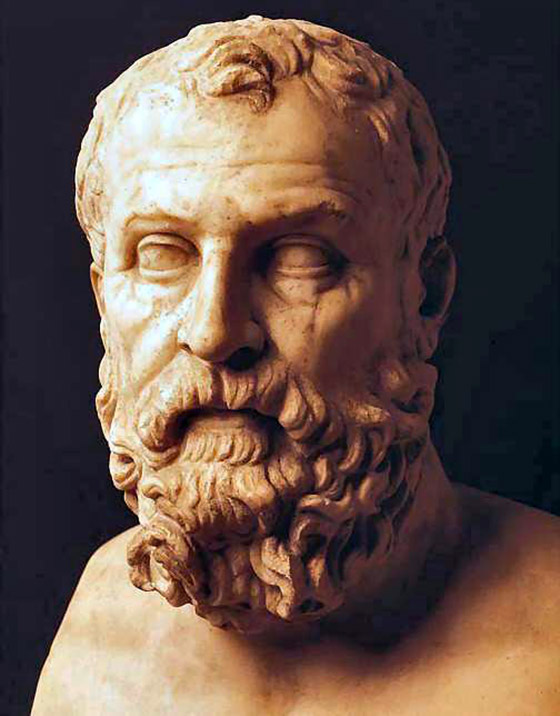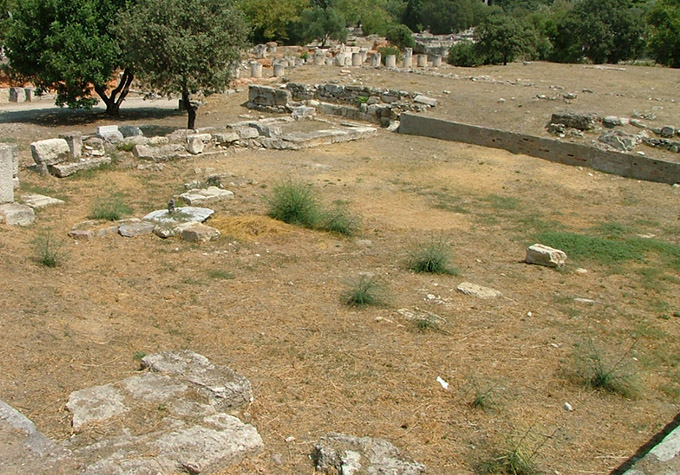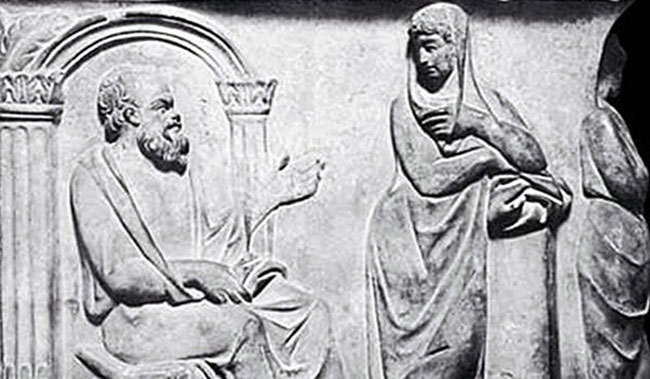DRACO– Athenians entrusted Thesmothet Draco in 621 BC to write laws. Dracon was the oldest legislator of Athens. Before Dracon law, trials in Athens, political decisions were managed and adopted by custom law and these law was not written. Draco, who was the Athenian eupatridae, arranged the material of earlier thesmothetai and codified former common law, acquitting it from abuse of judges. He introduced the distinction between manslaughter and murder in the first degree and defined incitement to murder.
His laws were known only from quotations in the murder and blood feuds. According to tradition, Draconian laws were unusually strict – “laws written in blood”.
The emergence of written laws in Athens was a major political progress. Popular masses soughted protection from the arbitrariness of the ruling class using the written laws. The oligarchs, who had to give laws, soughted and achieved and to confirm their privileges. Therefore, there was fighting for a new and more equitable laws. About 25 years after the Draco, Athens received new and more advanced laws enacted by Solon.

SOLON was the Athenian eupatridae who in 612 BC. persuaded the Athenians to kidnap from Megarians Salamis island, which they successfully captured. In 594 BC. he was chosen for the first Archons by the Athenians and entrusted him the task of drafting a new state constitution. Solon first brought revolutionary decree Seisachtheia which delivered the inhabitants of the debt burden. He canceled all the debts of the citizens for whom they would end up in debt bondage. All who had gone into exile to escape slavery and all those who were sold as slaves because of that they again became free. He also introduced epitimia, a restore of civil honor to all those who before dishonorable were expelled or otherwise punished. All political and other culprits, except those who have been convicted of murder or attempt to introduce tyrannies were returned from exile.
Solon legally sanctioned the state of plutocratic, timocratic Athens. Society was divided into four grades according to the amount of annual income in grain cereals (wheat was measured in medimnoi, its measurement is not known): Pentakosiomedimnoi (minimum 500 medimnoi grain), cavalry (300 medimnoi), soldiers (Zeugitai, 200 medimnoi), small farmers and laborers (aunt, they had at their disposal only his work). Citizens from the first three classes could be in the service of archons, treasurer enthusiasm, giving everyone the right to service the size of income. Thetes were given the right to participate in the National Assembly and the courts.
Solon from the Areopagus (the executive) had created two new institutions: Areopagus Council and Boule. Areopagus council was entrusted the duty to care for legality and for all regarding blood relationship and were met outside the city on the hill Ares. Boule was a new state body, the Council of 400 citizens, 100 from each phyle with one-year mandate. It was preparing material for the National Assembly, gave suggestions to the Council Areopagus, elected officials. He founded the People’s Court, which was called Heliaia (as it was sessioned under the open sky) and the people of this court could complain about any irregularity of state managers. Member of heliaia could become every citizen.

Solon made the reform of money measures and abolished Aegian coinage and the metric system and introduced Euboean. This made easier the transition of the position of debtors and facilitate from the lower social classes in higher. He encouraged the development of painted pottery. He abolished the export of grain and all the other products in addition to olive oil.
Solon after a successful completion of reforms 593. BC. left Athens that made clashes. The Greeks named Solon among the seven Philosophers of old age. He was one of the oldest historically documented political figure of Greece and Europe.
Save

